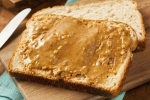What should patients eat before and following surgery to optimize recovery?

Adequate nutritional consumption is essential for addressing the surgical stress response and mitigating the loss of muscle mass, strength, and functionality.
Starting 7–10 days prior to surgery
Emphasis high-quality carbohydrate and protein intake to ensure optimal nourishment prior to surgery
Preoperative carbohydrate loading is highly recommended for surgical patients
Current carbohydrate loading recommendations typically focus on the evening before surgery, however, it may be of greater benefit if initiated days prior to surgery (7–10 days)
Using sports nutrition as a model, ingesting ~60% of total energy or 8 g per kg body mass per day of carbohydrate for a minimum of 3–4 days is effective for maximizing glycogen stores
Emphasis on complex carbohydrates, such as vegetables, fruits, and whole grains, will also ensure adequate intakes of vitamins, minerals, and fiber, which are important in supporting immunity and the microbiome, which may have implications for nutrient absorption, reducing inflammation, and muscle recovery
During the rehabilitation period
Protein intakes of at least 1.6 g/kg/day and up to 2.0–3.0 g/kg/day is generally recommended
Similar to the preoperative period, this amount should be consumed throughout the day, 20–40 g of protein per sitting
Consumption of EAAs and/or protein supplements between meals would be advantageous in achieving higher protein intake levels and optimize nutritional intake throughout the day when appetite is suppressed
Nutrient intake around an exercise/rehabilitation session can help increase lean mass, strength, and functionality, ultimately leading to faster return to activities of daily living
Starting 3–4 h before a therapy session, patients should consume a small meal, containing complex carbohydrates (50–100g) and quality protein (30–40g)
Then, 15–45 min prior to therapy, a carbohydrate and protein containing beverage should be consumed, followed by another protein beverage after the therapy session
In addition to protein, supplements such as creatine monohydrate, β-hydroxy-β-methylbutyrate (HMB), omega-3 fatty acid, and probiotic supplementation have demonstrated efficacy in the support of muscle, strength, and functionality, and may merit consideration.



